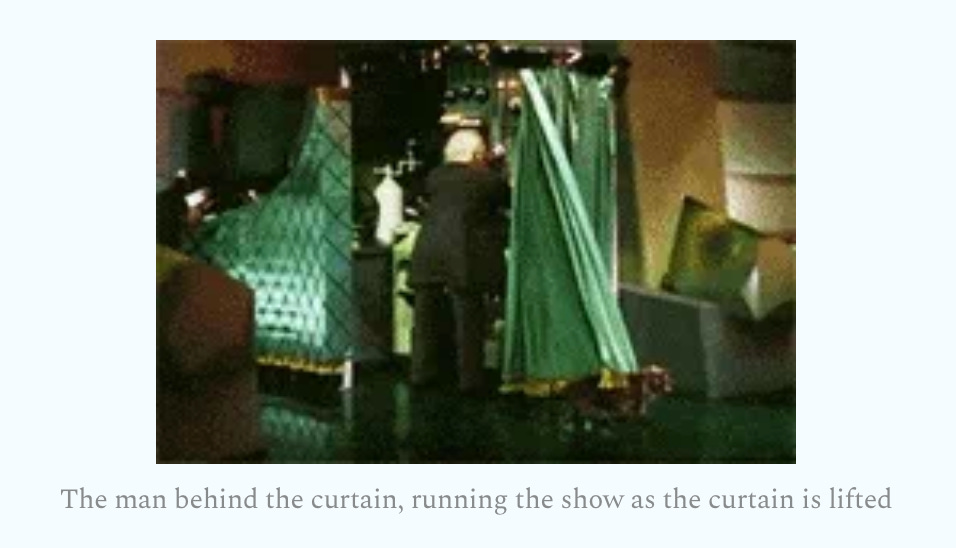At the top of this newszine Resistance Radio presents full members with the podcast version of the Radical Show episode 14 with the most published cardiologist in his field in history, Dr Peter McCollough: On Avoiding the Covid Vaccine Using Early Treatment Protocols.
Basic members of Radical Media may upgrade here:
Below, and free for all members, is a unique guest post by Rachel Maggart.


Rachel’s Substack may be subscribed to here. Her first post is republished for free, below. Do read on:
Trust the process
meaning in the absence of language and thought
Language is regarded as a vehicle conveying meaning, but what about the space between words, between thoughts? To my understanding, this is what poetry is about: rhythm and metre, the invisible elements that sculpt words on a page.
The space around words was fertile ground for Georges Perec, whose book, Espèces d’espaces (Species of Spaces), poked ‘round about or inside’ the void. Perec belonged to the literary group Oulipo, whose members play with formal constraints, paradoxically, to liberate the work.
Perec wrote a novel, W ou le Souvenir d’Enfance (W, or the Memory of Childhood), nowhere in its pages employing the letter e—the most common letter in the French language (not to mention English, etc. translations). It is possible to read this novel oblivious to Perec’s omission—blatant, once pointed out—and this is the power of the work: it dawns on the reader, who marvels at how she has read a novel without the letter e, not even noticing it, to ask herself: what else has she been missing? ‘Without e’ or ‘sans e’ is phonetically equivalent to ‘without them’ or ‘sans eux’ in French. W ou le Souvenir d’Enfance is an allegory of Nazi Germany and so takes up the theme of the Jews’ disappearance in the Holocaust. Not just disappearance on a gross physical plane but also as it plays out in human memory with its deletions, skirting the conscious permission of the forgetful person. And so the reader of W, ex post facto, has a window into the hidden mechanisms of trauma—its presence in absence—and can extrapolate this out to the holes in collective memory. The reader gains some awareness of what has been missing from the scripts and stories she has been running herself, as well as some awareness of the energy of absence, which stops her pendulum swinging between poles of emptiness and wholeness, because it points to emptiness and wholeness as being one and the same.
Thus the literary form becomes a vessel for real enquiry into the nature of mind and memory. It does this because it uses the medium of language which is also the medium of thought.
Hervé Le Tellier, the current president of Oulipo, is interested, like Perec, in how human beings erase other human beings. Sometimes the methods are tactile. For instance, Le Tellier’s mother cut him out of photographs to make him disappear. Discussing this and other subjects, among them his memoir writing, in a Writers & Company interview, Le Tellier says, ‘I try to be sincere, but sometimes I think I lie. But in fact it doesn’t matter so much, because what you remember, even if it’s a lie, for you it’s a truth.’ This statement touches on the fallible nature of memory, and points to the ultimate fiction as that written by our thoughts, which tell stories about the past and project into the future. Around our thoughts there apparently exists void or negative space, but this space will only ever be void or negative as it is conceived of by the mind. There is discourse around (auto)fiction and (un)truth, and this is all relative; the ultimate fiction is that written by our thoughts, because our thoughts go so often unnoticed and unchecked, so neatly disguised as reality, emotionally engrossing and persuasive, exhausting the themes: I am a good / bad person, or this is a good / bad thing or situation, for which I do or do not have a solution (more thoughts!). Le Tellier speaks of the novel as a simulation of life, and this is true, just as life is a simulation of thought, if life is filtered through the paradigm of the mind.
So the Oulipians, as they are called, create intricate labyrinths of form, in turn mirroring the activities of the mind.
Le Tellier was a mathematician and uses numerical play to great effect in his work, for instance, in his novel L’Anomalie (The Anomaly), hinging on doubles. The plot of L’Anomalie revolves around two flights, the first of which departs from Paris, landing in New York on March 21, 2021. Three months or 106 days later, the same flight with the same passengers and crew lands at a New Jersey military base. At this juncture, the characters have to face themselves, their destinies having changed radically in the space of three months (the spring season between March and June), a period within which profound psychological transformation is possible, even if physically a person can remain unchanged or even be rejuvenated, in which case she could be said to bend time. Divide 106 and you get 53, a number paying tribute to Perec, who died before finishing his novel, 53 Days, a detective story centring on the mysterious death of an author, as narrated by a man attempting to write a book in 53 days.
Numerical symbolism is of interest to me as I write Fugue, my novel layering musical structures and prose. In music theory, harmonic progression is described using roman numerals indicating the relationship of notes or chords forming a melody and its accompaniment, to the tonal centre or main key of a work, for example, I – IV – V – I. There are endless variations on conventional harmonic progressions (I – IV – V – I, just one example) the musical phrases and passages could take, each variation with its own sounds and textures, etc. evoking different emotional and psychological states. So are there ways a character’s trajectory could go. And associations sparked by the numerical sequences as written (for example, VI – VI – VI).
Throughout my novel are interwoven Brahms’ four Op. 10 Ballades, the first and final section of the No. 2 Ballade a tonal microcosm of the entire Op. 10 set. One could describe the key transitions of the No. 2 A section and its reprisal reflecting that of the suite of Op. 10 Ballades thus: I (D Major) – vi (b minor) – VI (B Major) – vi (b minor) – I (D Major). Significantly, the movement back to the D Major ‘tonic’ or I key centre in the No. 2 A section reprisal is sticky; in a subversion of expectations the reprisal comes back transposed, or shifted, only midway through this final section of the No. 2 Ballade the VI harmonies resolving back to I. What interests me here is how this might play out in the story overlay. As the underlying musical structure, the ‘transformational chain’ of tonal centres—I – vi – VI – vi – (VI) → I—is passing (or not) through the succession of 6s, a scene transpires in which the antagonist of the novel is fixated on breaking the patterns of his genetic lineage; he fears being made in the image of his father, outwardly a man of God, privately who behaved in a way that was opposite to God. The antagonist feels stuck and acts fatalistically, tormented by what he cannot see: that the stuck place is actually the place where the spell is broken (the symbolic import of vi – VI – vi / 6 – 6 – 6 negated by a fourth VI / 6) and that in his surrender to the unknown is his freedom, but in the (non)acceptance of those signs eluding him, or put simply, the way things are, is the difference between Heaven and Hell. Transformation cannot occur without the stuck place, but the antagonist is tormented because he is not okay with being unaware of what is happening behind the scenes.
Mine is another take on liberation through formal constraints. I am interested in suggesting through form what is not on the surface and beyond perception. What the antagonist does not see is revealed by the underlying musical plan representing the higher intelligence of those moments that seem insurmountable, in retrospect on the cusp of a breakthrough. The antagonist is tormented by his belief that things should not be as they seem, or are moving in the wrong direction. At root, he is tormented by the clarity he does not receive by perceiving himself to be a subject in a world of objects, just out of reach. His identity is disconnected from the forces more powerful than himself, acting on and through him. He is a Buddhist, in theory, and so to his separate self he might attribute the cause of his suffering, and in this there might seem a tragic irony—in his yearning to experience non-dual reality, he remains imprisoned by the dual—but he is situated in a larger materialist paradigm, reinforcing his separateness.
Materialism and the illusion of discreteness must be most powerful when hiding in the folds of spirituality. The commodification of Christmas is a case in point. Nothing, including the question of who am I?, has been spared co-option; there is too much to be gained monetarily through the furnishing of answers diverting the consumer’s attention away from that which could never be contained in rational comprehension, let alone a financial system. Material interests keep materialism afloat, and distract the seeker from seeking outside of her thoughts and beliefs, while perpetuating her thoughts’ churning inside of her discrete self, her made-up materialist bubble. The co-option of spirituality by materialism would also obfuscate the origins of the ideology of materialism in an arbitrary split between the domains of science and religion. In a BATGAP interview, the neuroscientist Mario Beauregard cites the 19th-century delegation of physical phenomena to science and non-physical phenomena to religion, still operative today. In collaboration with other scientists, Beauregard wrote a Manifesto for a Post-Materialist Science challenging materialism and its reliance upon a distortion of ourselves as solid matter, contrary to what quantum mechanics has shown. In so doing, he echoes Newton: ‘If anybody thinks that my universal law of gravitation explains gravity, he is an idiot.’ Equations and mathematical models can only reference that which is ultimately unprovable, unquantifiable, beyond the remit of physics. Without science and religion infusing each other, science does not embrace mystery, at the same time religion promotes smaller conceptions of God.
Mind, consciousness and spirit are not produced by but are interacting with the brain, Beauregard insists, and the implications of this are vast; what is at stake is unfiltered reality, the expansion of the mind beyond its hermetically-sealed man-as-machine mentality, in which thought forms are taken for granted and truth is circumscribed by neurotransmission. To keep the aperture closed is to deny our true nature which is seamless no-thing-ness. Paradoxically, in declining the panaceas of the mind and accepting complexity, there comes a lightness of being.
The immateriality of everything becomes apparent in the surrender of thoughts and beliefs. Beauregard speaks of being ostracised as he cast doubt on materialist science. He suffered mysterious physical symptoms, eventually understanding his dis-ease to be necessary for a process of transmutation. In the course of his dis-illusionment, his visual perception was altered.
For me, the epiphany has been a heart-led intuiting of the synergistic functioning of my body and mind, beyond any cerebral control centre. It’s no surprise then, that when the structures I have built to hold who I think I am have become calcified and are shaken, it’s going to hurt. When the psychic channels that have accumulated sediment are cleared in the purification of a paradigmatic shift, it might feel like liquid fire down the veins. We can only expect spiritual transformation not to show up in the physical if we believe in the separation between the body and the mind. So long as this is the case, the mind will assert its dominance and do what it has deemed productive, only to keep the pain alive and recirculating—a problem to be solved. Whereas, in the not doing will be an undoing of the binds that keep us from surrendering to the process of healing, that of a higher consciousness which requires resting in the unknowing.
In the space around words and thoughts there is the potent energy of absence: that which breaks down before the breaking through can occur, and something new can be realised.
I’ll end on this quote from Nietzsche that a friend sent me, at the same time I was looking into all this:
The Don Juan of the Mind: no philosopher or poet has yet discovered him. What he lacks is the love of the things he knows, what he possesses is esprit, the itch and delight in the chase and intrigue of knowledge—knowledge as far and high as the most distant stars. Until in the end there is nothing left for him to chase except the knowledge which hurts him most, just as a drunkard in the end drinks absinthe and methylated spirits. And in the very end he craves for Hell—it is the only knowledge which can still seduce him. Perhaps it too will disappoint, as everything that he knows. And if so, he will have to stand transfixed through all eternity, nailed to disillusion, having himself become the Guest of Stone, longing for a last supper of knowledge which he will never receive. For in the whole world of things there is nothing left to feed his hunger.
Merry Christmas, everyone!
Readers may subscribe to Rachel Maggart’s new Substack here.
Listen to this episode with a 7-day free trial
Subscribe to Radical Media - by Maajid Nawaz to listen to this post and get 7 days of free access to the full post archives.














